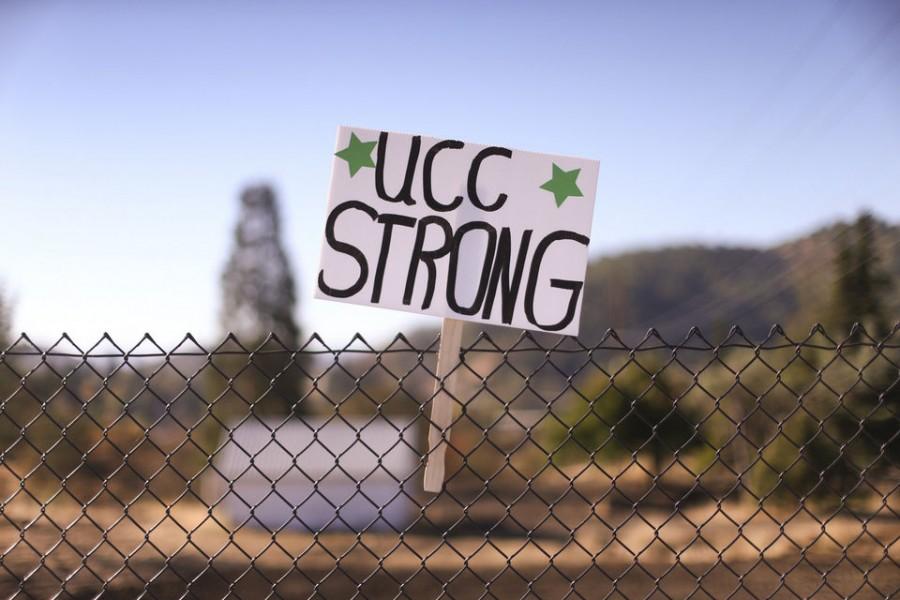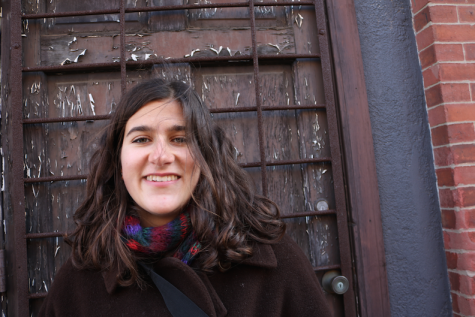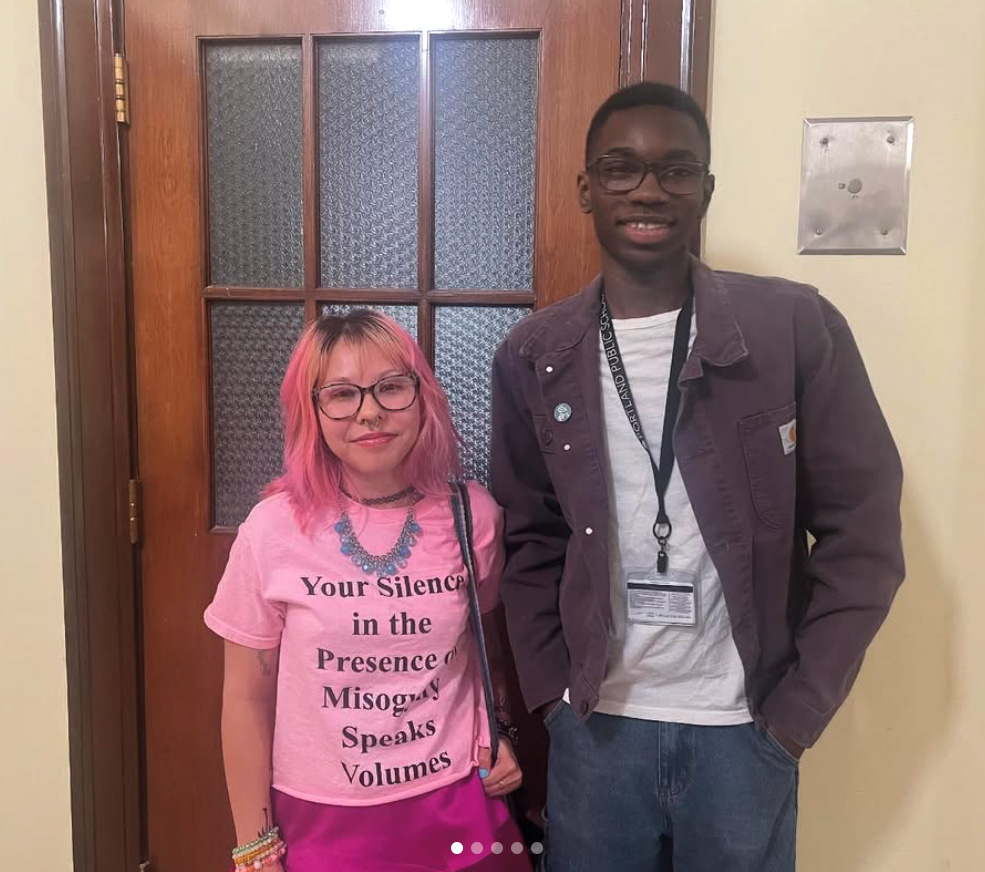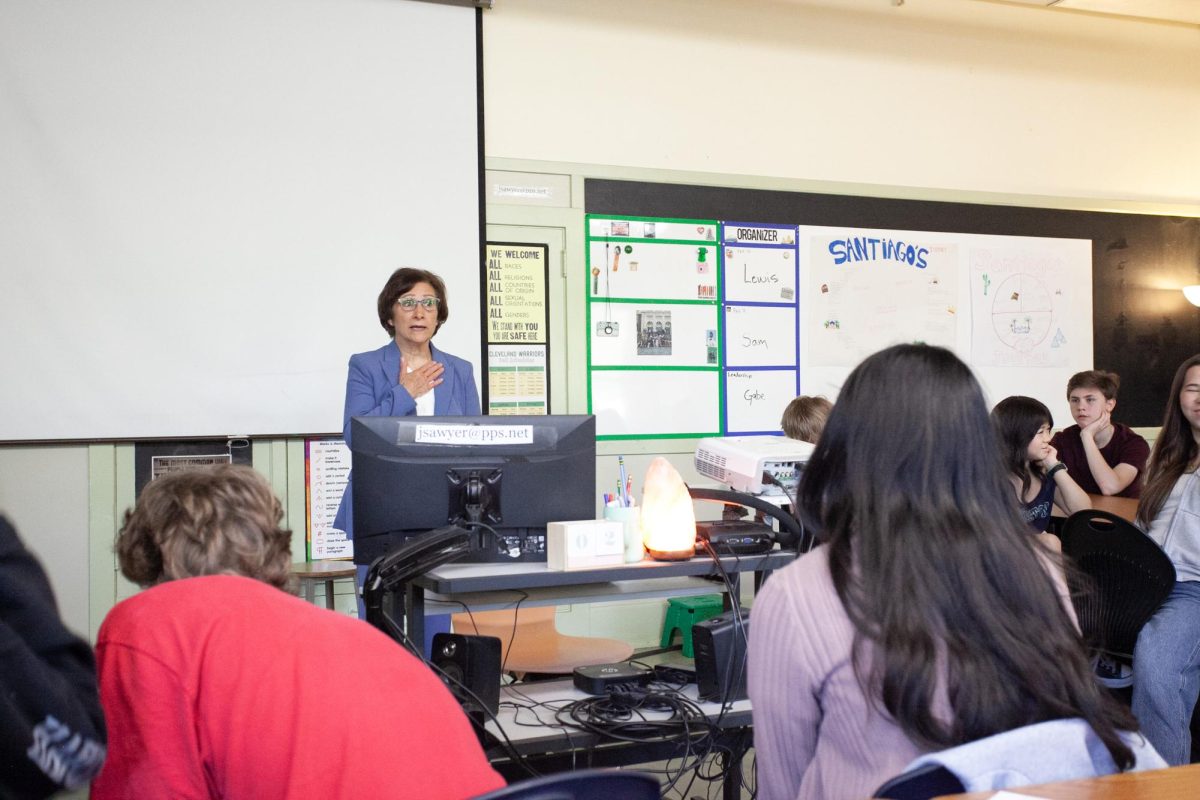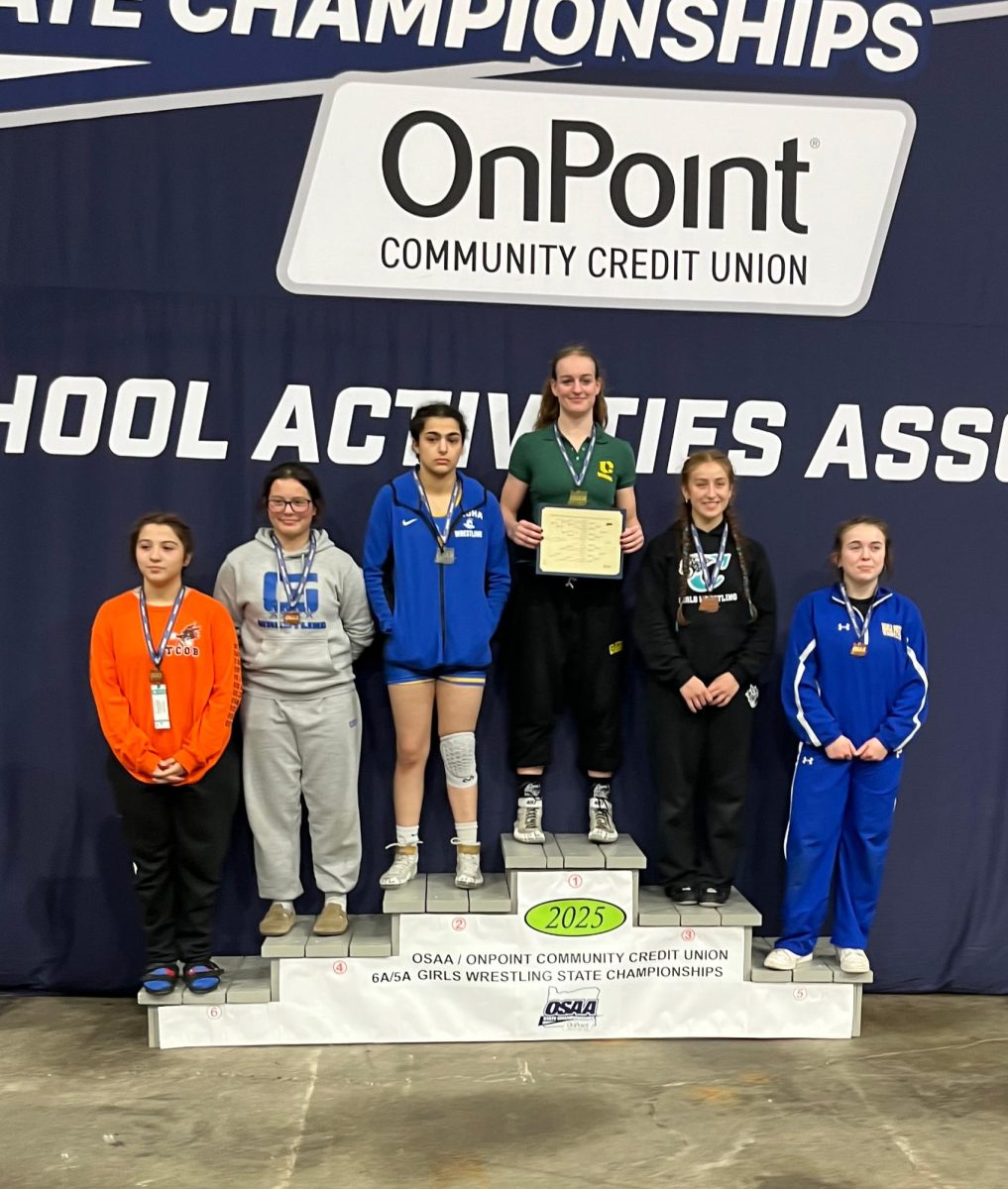To Name or Not To Name?
Clarion photo Beth Nakamura
Umpqua Community College shows support after a mass shooting Oct. 1. OregonLive’s photo
October 17, 2015
In no time at all on Thursday Oct. 1, a student of Umpqua Community College in Roseburg, Oregon turned his classroom to chaos. At approximately 10:30 a.m., he entered Snyder Hall wielding a “long gun.” In Larry Levine’s Introduction to Expository Writing course, room 15, he opened fire. The gunman was currently enrolled in this class and started his riot by shooting his professor directly in the head. A student witness heard him mutter, “I’ve been waiting to do this for years.” He then proceeded to shoot and kill eight other people.
Later that day, President Obama spoke to this issue stating, “There’s been another mass shooting in America… . That means there’s more American lives whose lives have been changed forever. That means there’s another community stunned with grief… .”
The shooting brought up this question, should the media name the gunman? Douglas County Sheriff John Hanlin does not believe the shooter should be named. “I will not give him the credit he probably sought prior to his horrific and cowardly act,” said Hanlin. “You will never hear me mention his name.” He also urged the news media and Douglas County residents not to refer to the shooter by name.
So should we keep the madman’s identity a secret or is it important that as Americans, we have the human right to know who caused these horrific acts?
Releasing the murderer’s name and giving them such extreme publicity as is done now can lead to “copycat attacks.” When gunmen execute such obscene acts, they receive a certain fame for it. Susann Kaltwasser of Salem addressed this stating, “Yes, when you give the shooter a name, you give him power even in death. Call him the shooter, the madman, the murderer. Don’t give him fame by using his name.”
In the recent Umpqua shooting, the murderer was connected to his blog post reading, “The more people you kill, the more you’re in the limelight.”
Tactics against recurrence of such attacks were used in June when a Canadian Television Network rejected running the name of the person who killed three police officers in New Brunswick. “Doing so could actually encourage the perception that his heinous acts are somehow justified,” said an editorial from the network.
The opposing angle is one of the First Amendment, freedom of speech and of the press. Should reporters tell the public everything they want to know? Is it the newspaper’s job to notify people what has happened and possible ways of fixing it? Patt Wilson of Keizer said, “Of course, the public needs to know everything about the shooter, dead or alive. Only a very sick person would think being identified as a cowardly murderer is glorifying.”
But what about the people that are “very sick”? Dr. Grant Duwe, a criminologist with the Minnesota Department of Corrections calculated that among his 160 cases involving mass public killers, 61 percent had serious mental illnesses. Other killers embodied anger, disappointment, and solitude.
The press should not release the name; they should focus on the crime and the victims. They should focus on identifying and helping the mentally ill and legislating stronger gun control laws. Lew Hundley of Salem agreed, stating, “Report the facts. Period… . We should put more thought into what to do about preventing situations. Not saying their names; now that will teach ’em.”
In order to prevent these attacks from occurring, we, as Americans and those we elect into office, need to take actions that will lessen the prevalence of these terrible mass shootings.



